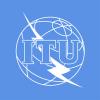-
PayPal allows sales of erotic content by e-reader companies after critics raise concerns about censorship.
-
Categories: Bahrain,
Belarus,
Egypt,
India,
North Korea,
South Korea,
Libya,
Venezuela,
Asia,
Middle East and North Africa (MENA),
Commonwealth of Independent States (CIS),
Europe,
Australia/New Zealand,
Arrests and legal action,
Human rights,
Surveillance,
Political filtering
The journalism and human rights organization came out with their annual "Enemies of the Internet" report on the countries that have the most restrictive censorship policies in place around the world.
-
The United Nations proposes to give the ITU more Internet governance power; a Chinese microblogger is sent to a labor camp after spreading rumors about SARS; France's National Assembly passes a law requiring new ID cards for French citizens; Iran creates the Supreme Council of Cyberspace to protect Iranians from cultural invasion.
-
With the SOPA/PIPA controversy over for now, Internet freedom confronts another potential threat with the United Nations' International Telecommunications Union.
-
Chinese users flooded Obama's Google+ page; the Committee to Protect Journalists released its Attacks on the Press report; Russians take to the Internet to criticize Putin.
-
Russians take to the blogosphere to get information about the upcoming national election. However, some critics warn that the country could see a media crackdown soon.
-
Pakistan proposes a National URL Filtering and Blocking System and considers filtering SMS in the country in advice of its 2013 elections.
-
The Committee to Protect Journalists released its 2011 report, calling Pakistan the most dangerous country for reporters and condemning censorship around the world.
-
Obama's Google+ campaign page becomes flooded with Chinese comments from users circumventing the Great Firewall.
-
Anonymous promises regular Friday attacks on government and corporate websites; the EU suspends ACTA ratification; Reddit users draft the Free Internet Act in response to SOPA/PIPA.
-
Reddit users propose the Free Internet Act as an alternative to SOPA/PIPA.
-
Anonymous vows to attack websites more regularly in protest of ACTA.
-
Iran blocked both foreign websites and encrypted web traffic; Anonymous hacked into US FTC websites; the entertainment industry continued to fight for SOPA/PIPA.
-
Tor is helping Iranians circumvent the government-imposed block on encrypted web traffic.
-
Iran cuts off access to multiple websites right before the upcoming anniversary of the 1979 Islamic Revolution.
 The journalism and human rights organization came out with their annual "Enemies of the Internet" report on the countries that have the most restrictive censorship policies in place around the world.
The journalism and human rights organization came out with their annual "Enemies of the Internet" report on the countries that have the most restrictive censorship policies in place around the world. The Committee to Protect Journalists released its 2011 report, calling Pakistan the most dangerous country for reporters and condemning censorship around the world.
The Committee to Protect Journalists released its 2011 report, calling Pakistan the most dangerous country for reporters and condemning censorship around the world.











